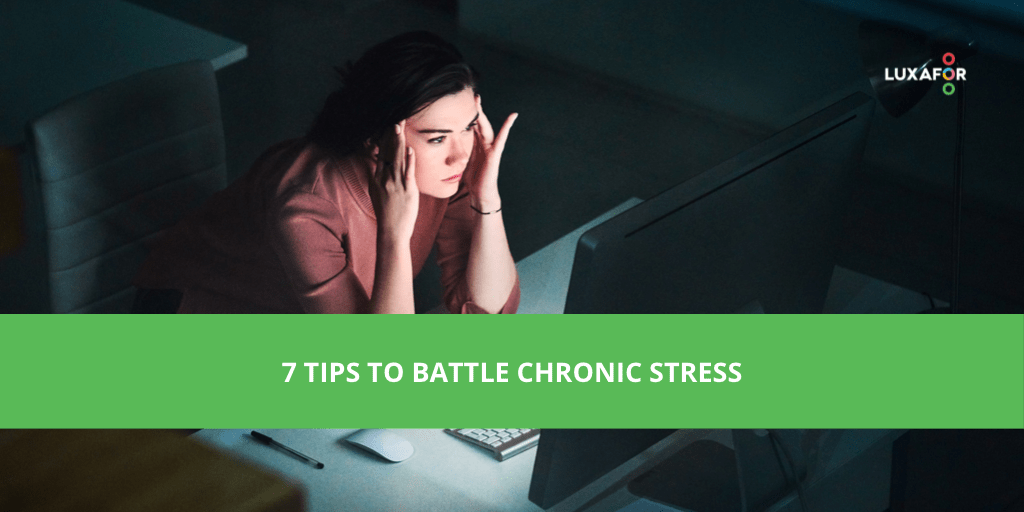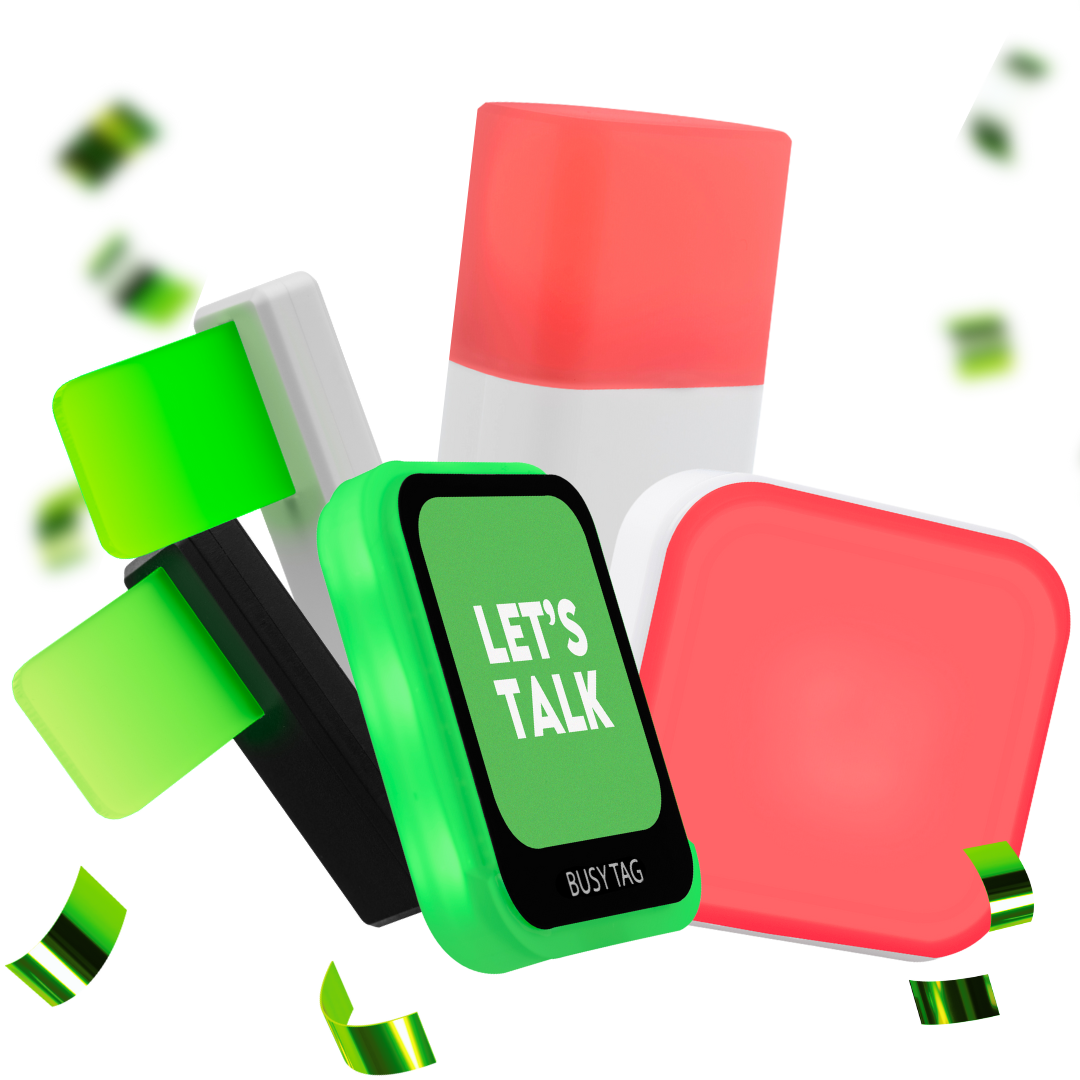7 Tips To Battle Chronic Stress
What does stress do to your health?
Short-term, temporary stress is a normal part of life – it mobilizes, forces us to persevere when we have to overcome temporary complications or obstacles to later relax, regenerate and move on. Unfortunately, the problem starts when you are forced to live under conditions of stress, frustration or tension for a long time, repeatedly and this is exactly what happened to many of us during the past years – first the pandemic, then the growing military conflicts, hostilities and parallel to everything – each of us has our own personal daily worries and problems to deal with.
At some point, the body can no longer withstand the burden of long-term mental stress and then the stress can quickly turn into serious physical symptoms that can affect our health and well-being. Prolonged stress means that our muscles are constantly tense. In addition, in order to mobilize forces, in a stressful situation, the body continues to produce various hormones – adrenaline, nor-adrenaline, cortisol and testosterone. If this continues for a long time, it leads to exhaustion, different types of pain caused by muscle tension, or even lead to more serious diseases.
Do you find it hard to manage your stress levels and get distracted easily?
Long-term living with stress becomes a habit
Our bodies and minds are remarkably adaptable, but that can be a double-edged sword. When we live with chronic stress and discomfort, it can become a familiar state, almost like a default setting for the body and mind. This habituation of stress can be detrimental. It can lead to burnout, weakened immune system, and increased risk of chronic health problems. Our bodies release stress hormones like cortisol in response to perceived threats. Over time, this can become a normalized state, making us less sensitive to the negative effects of stress.
For the most part, we might convince ourselves that feeling stressed or uncomfortable is a normal state of being “just the way things are” and resign ourselves to a lower quality of life. The good news is, this cycle can be broken. Although chronic stress can take a toll on your well-being there are some practical steps you can take to fight back. In this article we have listed 7 key tips to battle chronic stress and regain your best performance:
1. Identify your daily stressors
Chronic stress might have you picturing major life events, but the reality is, everyday annoyances can build up and wreak havoc on your well-being. Here’s how to identify those sneaky daily stressors that might be sabotaging your calm:
Journaling: Keep a daily stress log for a week. Note down the time of day, the situation you were in, and how you felt (physically and emotionally). This helps identify patterns and pinpoint common triggers.
Body check-Ins: Throughout the day, pause and ask yourself, “Am I feeling tense or anxious?” If so, reflect on what was happening just before that feeling arose.The first step is to understand what triggers your stress response.
Try your best to notice, track and identify the situations, thoughts, and feelings that cause you to feel overwhelmed. Once you identify your stressors, you can start to develop strategies for avoiding or managing them. Remember, it’s not just the big things. These can be simple everyday stressors, while seemingly minor, they can accumulate and significantly impact your well-being.
2. Prioritize relaxation techniques
Feeling overwhelmed and like you’re constantly on the go? Chronic stress can deplete your energy reserve and leave you feeling burnt-out. Make relaxation a daily priority. The good news is, incorporating relaxation techniques into your daily routine can be a game-changer. Techniques like deep breathing, meditation, yoga, or progressive muscle relaxation can help to calm your mind and body.
Effective relaxation techniques can activate the body’s relaxation response, lowering stress hormones and promoting feelings of calm. When you’re relaxed, you can focus more clearly and think more creatively. Say goodbye to brain fog and hello to productivity. Relaxation techniques can combat anxiety and promote feelings of well-being, leaving you feeling happier and more positive.
Work undisturbed and keep your focus easily.
3. Move your body when you are worried
In a tense, stressful situation, the muscles also tense up. If you do not start an active activity at this moment, the muscles will remain in a state of tension. Therefore, as soon as there is an event that makes you stressed or worried, you should immediately do some type of movement, a physical activity to release the tense muscles. If you cannot quickly deal with the stressful psychological cause (worrisome thoughts, an argument, other stressful situation), you can work with the body – move, exercise, perform stretching and muscle-relaxing exercises – this will surely help.
There are plenty of ways to move yourself: go for a walk, do some yoga, stretch the body and muscles to release the tension, go for a walk in the nature, do a small workout session even by the office desk. Physical activity is a powerful stress reliever. Aim for at least 30 minutes of moderate-intensity exercise most days of the week. Brisk walking, swimming, dancing, or cycling are all great options. Even short bursts of activity throughout the day can be beneficial.
4. Fuel your body right
Eating a balanced diet that is rich in fruits, vegetables, and whole grains can help to improve your mood and energy levels. Limit processed foods, sugary drinks, and excessive caffeine, which can worsen stress symptoms. A healthy organism requires water – how much water do you drink a day? If only two or three glasses/cups a day, then you can’t expect to feel great, healthy and well-hydrated. Our cells, skin, the spine, the internal organs, muscles, ligaments and ultimately the brain need water very much and you should provide enough water to your body daily.
The food you choose has a profound impact on your energy levels, mood, and overall well-being. Think of your body as a high-performance machine – the fuel you put in directly affects how well it runs. Remember, you don’t have to overhaul your diet overnight. Start by making small, sustainable changes. As you incorporate healthy eating habits into your routine, you’ll notice a positive difference in your energy levels, focus, and overall well-being. You’ll be amazed at how much better you feel when you fuel your body right.
5. Socialize and foster connections
Social support is essential for managing stress. Spend time with friends and family who make you feel good. Talking to a trusted friend or therapist can also be helpful. Humans are social creatures who thrive on connection. Strong relationships with loved ones provide a sense of belonging, support, and happiness that can counteract the harm and the effects of long-term stress. In today’s fast-paced world, prioritizing social connection can feel like a challenge, but the benefits are undeniable.
Investing in your social connections is a good investment in your overall well-being and it is completely free, it only takes you to reach out to someone – 1 call, 1 conversation can make a difference. By nurturing strong relationships and fostering meaningful connections, you’ll create a richer, happier, and more fulfilling life. So, stop scrolling, stop worrying, reach out to loved ones, and let the power of connection work its magic.
Get your Stress-Free Week Checklist PDF now!
6. Set boundaries
By now you know that chronic stress can take a toll on your mental and physical health. One of the most effective ways to combat stress is by setting boundaries. Boundaries are not about being selfish; they’re about creating healthy limits to protect your time, energy, and well-being. Don’t be afraid to say no to extra commitments or requests that will add to your stress load. Learn to delegate tasks and prioritize effectively. It’s okay to take time for yourself.
Remember, setting boundaries is a continuous process. As your life and priorities change, so too will your boundaries. Be flexible, but don’t be afraid to adjust and enforce your limits as needed. By setting healthy boundaries, you take back control of your time and your power. This allows you to focus on what truly matters, ultimately leading to a less stressful and more fulfilling life.
7. Don't rush yourself - give yourself a break
In our fast-paced world, the pressure to constantly be “on” is required by society, clients, coworkers and even some of our family members. We rush from task to task, filling every minute with activity. But here’s the secret: sometimes, the most productive thing you can do is simply give yourself a break – whether you take a nap, go outside, read a book, it does not matter how you do it, just take the time for yourself to recharge.
Remember – the longer you have been under stress and neglected yourself, the longer it will take to change something, recover from stress-induced burnout, fatigue, pain and other health problems. Taking a break is not a sign of weakness – it’s a sign of strength. By prioritizing self-care and incorporating breaks into your routine, you’ll be surprised at how much more productive and focused you can become. So, slow down, breathe, and give yourself permission to pause.
To sum up
We hope that with adding at least some of these 7 tips into your daily routine, you can develop a toolbox of strategies to combat stress and create a more balanced and healthy lifestyle. By incorporating small changes into your daily routine, you can significantly improve your well-being. Start by identifying your stress triggers, then prioritize relaxation techniques like deep breathing or meditation. Fuel your body with nutritious foods and connect with loved ones for social support. Also setting boundaries and taking breaks are crucial for managing your workload and preventing burnout.
If you find yourself struggling, remember, self-care, boundaries and taking time for yourself is a sign of strength, not weakness. By taking these steps, and practicing at least some of the methods you can develop a personalized approach to combating chronic stress and pave the way for a happier, healthier and more productive you. When you identify your triggers, you can start to develop strategies to deal with them. By becoming aware of your daily stressors and taking steps to manage them, you can create a calmer and more resilient mindset for a happier and healthier you. Remember, managing chronic stress is a journey, not a destination.
Luxafor Orb
LUXAFOR HELPS PEOPLE TO ACHIEVE THEIR GREATEST PRODUCTIVITY LEVELS WITH A WIDE VARIETY OF OFFICE PRODUCTS. LET’S BE PRODUCTIVE TOGETHER!


















